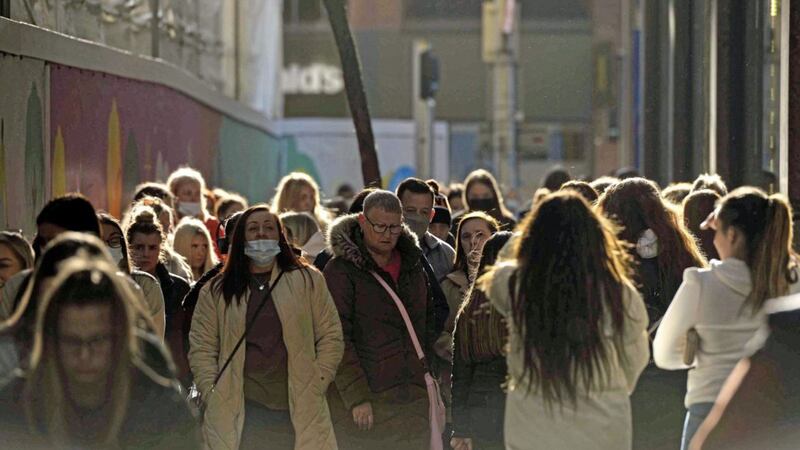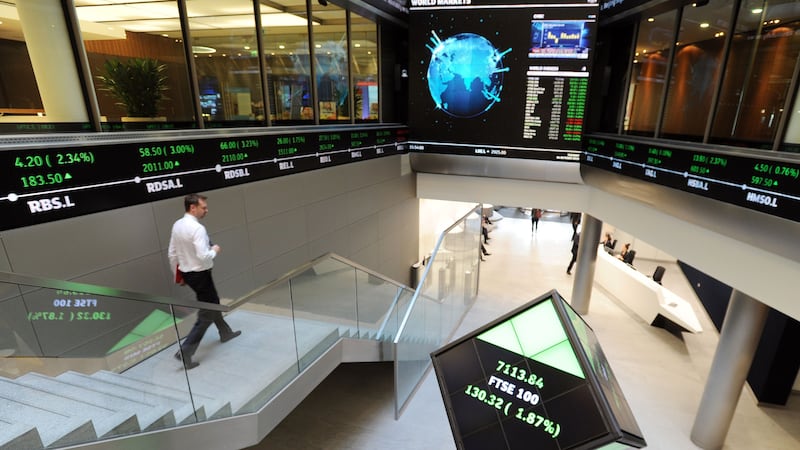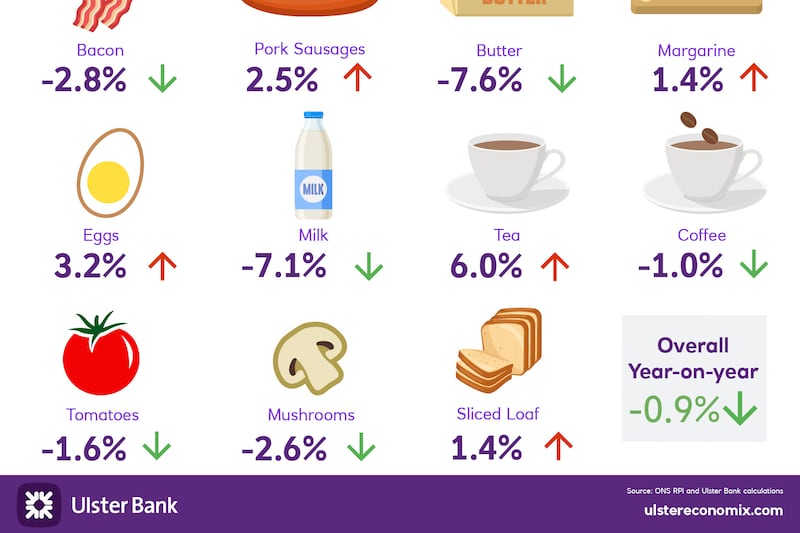THE north’s private sector returned to growth at the start of the second quarter of 2021, as the gradual reopening economy drove activity and job creation.
April’s Purchasing Managers Index (PMI) from Ulster Bank found rising activity in the manufacturing, services and retail sectors, with the construction sector broadly stabilised.
The monthly survey, which is based on the experiences of 200 private businesses, also showed confidence in the north’s private sector at its highest for 14 months.
The PMI was published on Monday alongside the latest cross-border business monitor from InterTradeIreland, which found 63 per cent of firms surveyed in stable or growth mode.
Ulster Bank’s chief economist Richard Ramsey said the rebound in last month’s business activity reflected in the PMI was the first rise since September 2020, marking the fastest rate of growth in 33 months.
Employment increased for the second month running, with the pace of job creation hitting a 40-month high.
But business costs continued to soar during April, with the rate of cost inflation hitting a fresh survey record for the second month running.
Firms reported higher prices for raw materials, increased shipping costs and rises in charges for energy and fuel.
The continued rise in input costs saw businesses pass it onto their customers at a record rate.
Meanwhile, suppliers' delivery times lengthened considerably again, with respondents often linking this to Brexit.
A combination of Covid-19 and Brexit was also blamed for depressing opportunities for new overseas business.
Nevertheless, exports as a whole improved during April, with output ramping up in the Republic and USA.

Richard Ramsey said April broadly heralded a significant improvement in local business conditions, with retail, manufacturing and services all reporting an increase in both output and employment.
Services firms recorded the strongest rate of job creation of all four sectors with employment rising at its fastest pace since August 2007.
Manufacturing firms also increased their headcount at the fastest pace in almost seven years.
“Clearly, local firms have benefited from a notable pick-up in demand,” said the economist. “But this improvement is occurring alongside significant supply chain disruption.
“Adapting to the new NI Protocol is one aspect of the increasing cost of doing business. However, it isn’t the only source of disruption.
“Economies around the world have seen a lengthening in suppliers’ delivery times due to the pandemic and worldwide shipping issues such as a shortage of shipping containers.
“Supply chain disruption and intense inflationary pressures will be with us for a while,” said Mr Ramsey.
“The key question is for how long? Despite these challenges local firms are the most optimistic about business activity in twelve months’ time than they have been since the pandemic began.
“But whilst increasing activity is one thing, increasing profitability may prove to be much more difficult. This is particularly the case in a tight labour market, something that a range of other surveys have highlighted.”







